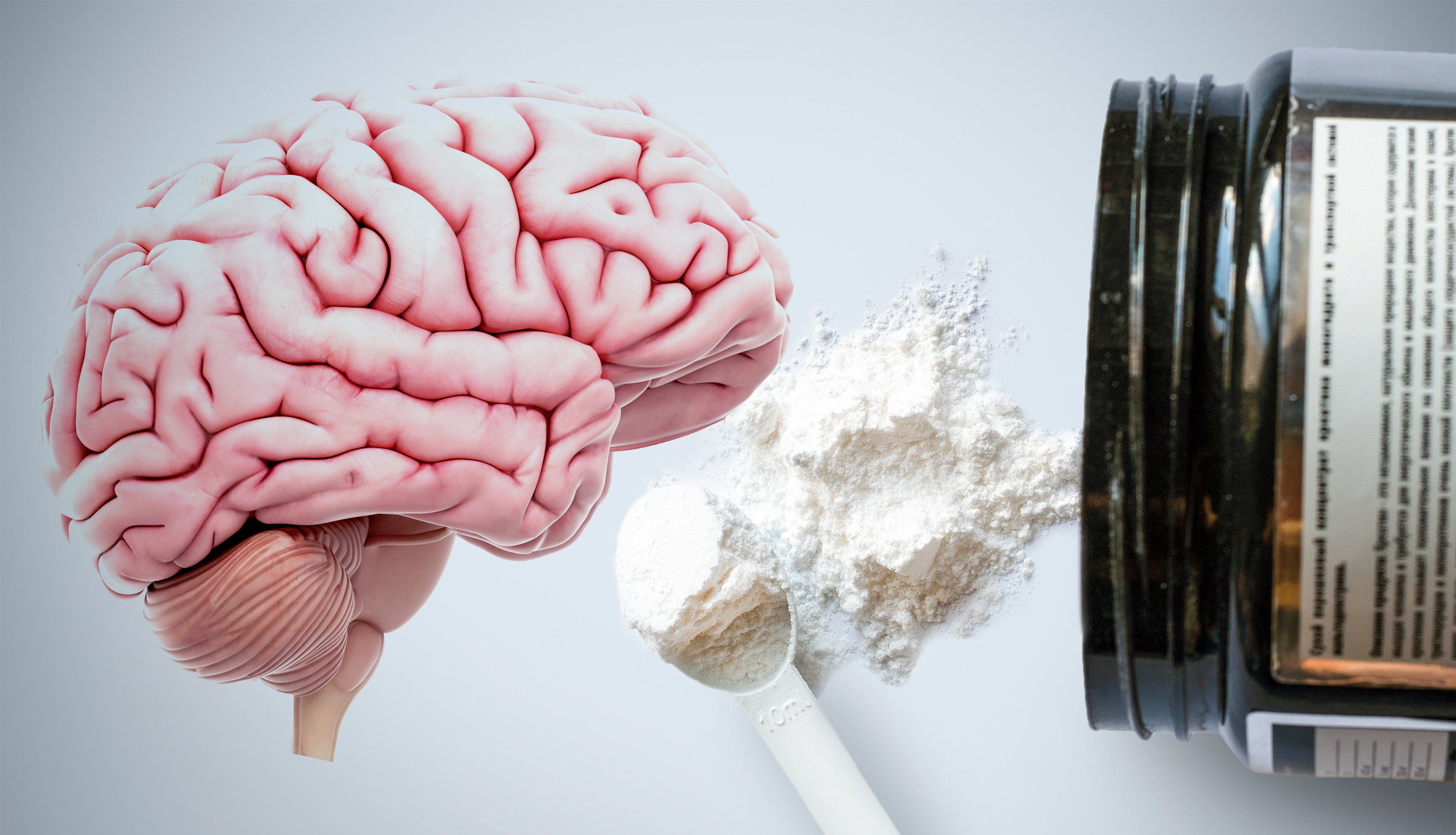Creatine! The Single Most Powerful (and Misunderstood) Supplement
Creatine is often pigeonholed as a supplement solely for bodybuilders, misunderstood by many as a mere muscle-building aid. However, its benefits extend far beyond the gym, with scientific research revealing its potential to enhance cognitive function and support neurological health.
This article delves into the multifaceted advantages of creatine, debunking myths and presenting evidence-based insights that can transform both physical and mental performance.
The Science Behind Creatine
Creatine is a naturally occurring compound found in small amounts in certain foods and synthesized by the body. Its primary role in the body is to assist in the production of adenosine triphosphate (ATP), which is the energy currency for cells.
The human body stores creatine in the muscles as phosphocreatine, which is used to regenerate ATP during high-intensity, short-duration activities.
How Creatine Enhances Performance
When you engage in activities that require quick bursts of energy, such as sprinting or heavy lifting, your muscles need ATP rapidly. Phosphocreatine donates a phosphate group to ADP (adenosine diphosphate) to form ATP, providing immediate energy.
By increasing the phosphocreatine stores in your muscles, creatine supplementation ensures a greater supply of ATP, allowing you to maintain high-intensity performance for longer periods.
Cognitive Benefits of Creatine
While creatine's role in physical performance is well-known, its impact on cognitive function is a relatively recent discovery. Research has shown that creatine can cross the blood-brain barrier and increase phosphocreatine stores in the brain.
This additional energy supply can enhance brain function, particularly in tasks that require short-term memory and quick thinking.
Memory and Mental Fatigue
Several studies have demonstrated that creatine supplementation can improve cognitive performance in tasks requiring memory and attention.
For example, a study published in the Journal of Clinical Psychopharmacology found that creatine improved working memory and intelligence in healthy adults.
Additionally, creatine has been shown to reduce mental fatigue, making it a valuable supplement for prolonged cognitive tasks.
Reasoning Skills
Creatine's role in enhancing reasoning skills is supported by various studies. One such study, published in the British Journal of Nutrition, found that creatine supplementation improved cognitive function, particularly in tasks that required quick decision-making and problem-solving.
These findings suggest that creatine could be beneficial not only for athletes but also for individuals in professions requiring high levels of cognitive performance.
Debunking Myths: Beyond Muscle Building
 Creatine's reputation as a bodybuilding supplement has led to numerous misconceptions about its usage and benefits. It's important to dispel these myths to fully understand the breadth of creatine's potential.
Creatine's reputation as a bodybuilding supplement has led to numerous misconceptions about its usage and benefits. It's important to dispel these myths to fully understand the breadth of creatine's potential.
Myth: Creatine is Only for Athletes
One of the most pervasive myths is that creatine is only beneficial for athletes or bodybuilders.
While it's true that creatine is highly effective in enhancing physical performance, its benefits extend to cognitive function and overall health. This makes it a valuable supplement for anyone looking to improve their mental clarity, memory, and energy levels.
Myth: Creatine Must Be Cycled
Another common myth is the necessity of cycling creatine. Early recommendations suggested cycling creatine to prevent potential side effects, but contemporary research has debunked this idea.
Studies show that taking a consistent daily dose of creatine is both safe and effective. The "loading phase" often recommended is also unnecessary; a steady daily intake of 5 grams is sufficient to maintain elevated creatine levels in the body.
Myth: Creatine Causes Long-Term Health Issues
Concerns about the long-term health effects of creatine supplementation have also been largely unfounded. Extensive research, including studies published in the American Journal of Clinical Nutrition, has shown no adverse effects on kidney or liver function in healthy individuals.
On the contrary, creatine has been shown to have neuroprotective effects, making it a potentially beneficial supplement for long-term health.
Creatine and Neurological Health

Beyond its physical and cognitive benefits, creatine is emerging as a potential therapeutic agent for various neurological conditions.
Its role in energy production and neuroprotection makes it a promising supplement for supporting brain health.
Parkinson's Disease
Research has indicated that creatine may help in the management of Parkinson's disease. A study published in The Lancet found that creatine supplementation slowed the progression of the disease in animal models.
While more research is needed in human subjects, these findings suggest that creatine could play a role in supporting the health of individuals with Parkinson's.
Huntington's Disease
Similarly, creatine has shown potential benefits for those with Huntington's disease. A study published in the Journal of Neuroscience demonstrated that creatine supplementation improved survival and motor performance in animal models of Huntington's disease. These promising results warrant further investigation into the potential neuroprotective effects of creatine for Huntington's patients.
Amyotrophic Lateral Sclerosis (ALS)
Creatine's neuroprotective properties have also been explored in the context of amyotrophic lateral sclerosis (ALS). Research published in Neurology indicated that creatine supplementation might help improve motor function and extend survival in animal models of ALS.
While human studies are still needed, creatine's potential benefits for ALS patients highlight its broad therapeutic potential.
Practical Considerations and Cost-Effectiveness
One of the most compelling reasons to consider creatine is its affordability and ease of use. Compared to many other supplements, creatine offers a high return on investment in terms of health benefits and cost.
Dosage and Administration
Dr. Peter Attia, a leading expert in health and longevity, recommends a daily dose of 5 grams of creatine. This simple regimen is sufficient to maintain elevated creatine levels in the body without the need for a loading phase.
Additionally, creatine is highly versatile and can be easily mixed with warm water for better solubility, making it convenient to incorporate into your daily routine.
Cost-Effectiveness
Creatine is one of the most cost-effective supplements on the market. The cost per serving is often less than a cup of coffee, making it accessible for most individuals.
Despite its low cost, the benefits of creatine supplementation are significant, offering improvements in physical performance, cognitive function, and potentially neurological health.
Conclusion
Creatine is a multifaceted supplement that transcends its reputation as a mere muscle-building aid. Its ability to enhance both physical and cognitive performance, coupled with emerging research on its neuroprotective properties, positions it as one of the most powerful and misunderstood supplements available.
Whether you're an athlete looking to improve your performance, a professional seeking cognitive enhancement, or someone interested in supporting long-term brain health, creatine offers a myriad of benefits that can help you achieve your goals.
By understanding and utilizing creatine's full potential, you can transform your approach to supplementation and harness the power of this incredible compound for both body and mind.
Sources
- The Role of Phosphocreatine in Energy Production
- Creatine Supplementation and Cognitive Function
- Creatine's Impact on Memory and Intelligence
- Creatine and Mental Fatigue
- Creatine for Neurological Health
- Parkinson's Disease and Creatine
- Creatine's Benefits in Huntington's Disease
- Amyotrophic Lateral Sclerosis and Creatine
- Safety and Efficacy of Creatine
- Dr. Peter Attia on Creatine Dosage























































![[LIVE] Engage2Earn: auspol follower rush](https://cdn.bulbapp.io/frontend/images/c1a761de-5ce9-4e9b-b5b3-dc009e60bfa8/1)














